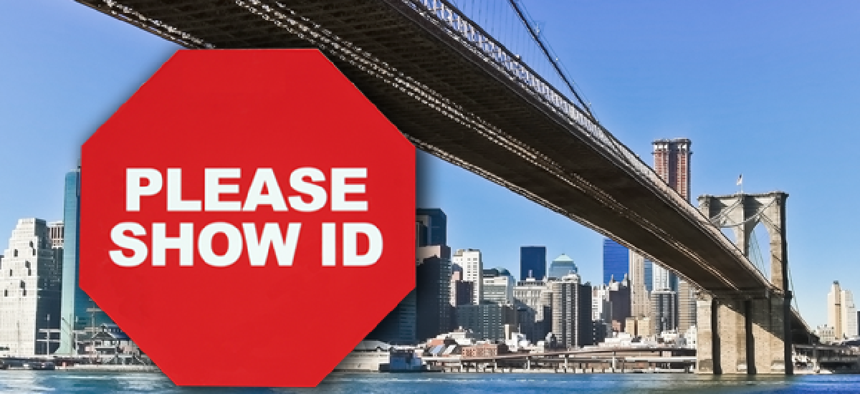NYC to roll out municipal ID

The ID card will be targeted to those who do not have a driver's license or other official identification and would allow New Yorkers, regardless of citizenship status, to access basic city services, open bank accounts and lease apartments.
In January, New York City will launch a new municipal identity card program targeted to those who do not have a driver’s license or other official identification.
The program would allow New Yorkers, regardless of their citizenship status, to access basic city services, open bank accounts and lease apartments. “For so many New Yorkers, a proper ID is not in their wallet. And that means a lot for their day-to-day lives. It creates a lot of problems and challenges for people,” said Mayor Bill de Blasio in a recent speech.
Those who particularly will benefit from the card include members of the transgender community – who will be able to choose their gender on the card, homeless individuals, adults re-entering society after incarceration and young people in foster care.
“I want to emphasize this card is important for all New Yorkers,” De Blasio added. “It is important for all of us to have a better city. Even for those who already have ID, we’re going to make sure that this card brings a lot to the equation, a lot of benefits that will go with it.”
To broaden its appeal, the city administration is working with cultural institutions to offer perks such as memberships or discounted tickets to cardholders. The card will be free the first year, and there will be walk-in enrollment centers – along with online applications – to apply for the card.
In April the mayor issued a solicitation for project management and quality assurance services systems; integration services; and card printing services for the ID card. In late July the city started looking for a deputy director for the project.
So far, the city has not yet decided on specific information to be needed for the card nor its security features. Commissioner Nisha Agarwal, in the Office of Immigrant Affairs, said the city is, “in the process of finalizing which documents will be utilized for accessing this card. People will have to establish their identity and residency, and we’re likely to have a point system similar to the DMV.”
The card will have a number of different security features to prevent fraud, such as holograms, continued Agarwal. He said the city is also working with banks, credit unions and federal regulators to make sure the cards meet federal banking regulations and will be accepted by banking institutions.
According to the Center for Popular Democracy, New York’s ID cards could boost immigrant business.
"The multiplier effect of the municipal ID is going to be huge because of the financial empowerment aspect," said Steven Choi, executive director of the New York Immigration Coalition in a statement. "People who don't have IDs or a bank account can't participate in the financial system." The advocacy group released a report in February on the positive aspects of ID cards.
Not everyone, however, is thrilled with the idea. The New York Civil Liberties Union (NYCLU) opposed the idea because it believes the information could be exploited by police.
In a statement, NYCLU’s Advocacy Director, Johanna Miller, said the bill “provides for the city to copy and store people’s most sensitive documentation, like pay stubs, Social Security numbers and even their children’s educational records.”
“In this bill, the city has not done enough to protect those documents from being used by law enforcement,” she added. “The NYPD, FBI, DHS and others can request these documents without having to show probable cause. And if they are requested, the city has no obligation to even notify the person so they might be able to defend their own privacy.”
However, de Blasio said the city is “very, very focused” on confidentiality and privacy. “A lot of work has gone into making sure that privacy rights are respected in this process “
“The information necessary to provide the ID cards will not be shared with any other government agency or third party, except in two situations,” he said .
“One, when verifying the individual’s path to eligibility for benefits they have applied for… and second, of course, in response to a court order, subpoena or warrant. But the applicants will not be asked about immigrant status … and the application materials will be destroyed no later than two years after submitted. So a number of steps have been taken to ensure the right balance.”
New Haven, Conn., issued the first municipal identification card in the United States. Other cities with municipal ID cards include San Francisco, Asbury Park, N.J. and Washington, D.C. In mid-July Reuters reported that Seattle is considering a city ID card to include illegal immigrants. Similarly, Austin, Texas, Mayor Pro Tem Sheryl Cole sponsored a resolution to have municipal ID cards for undocumented immigrants.
NEXT STORY: GSA makes room at the table for the CISO





